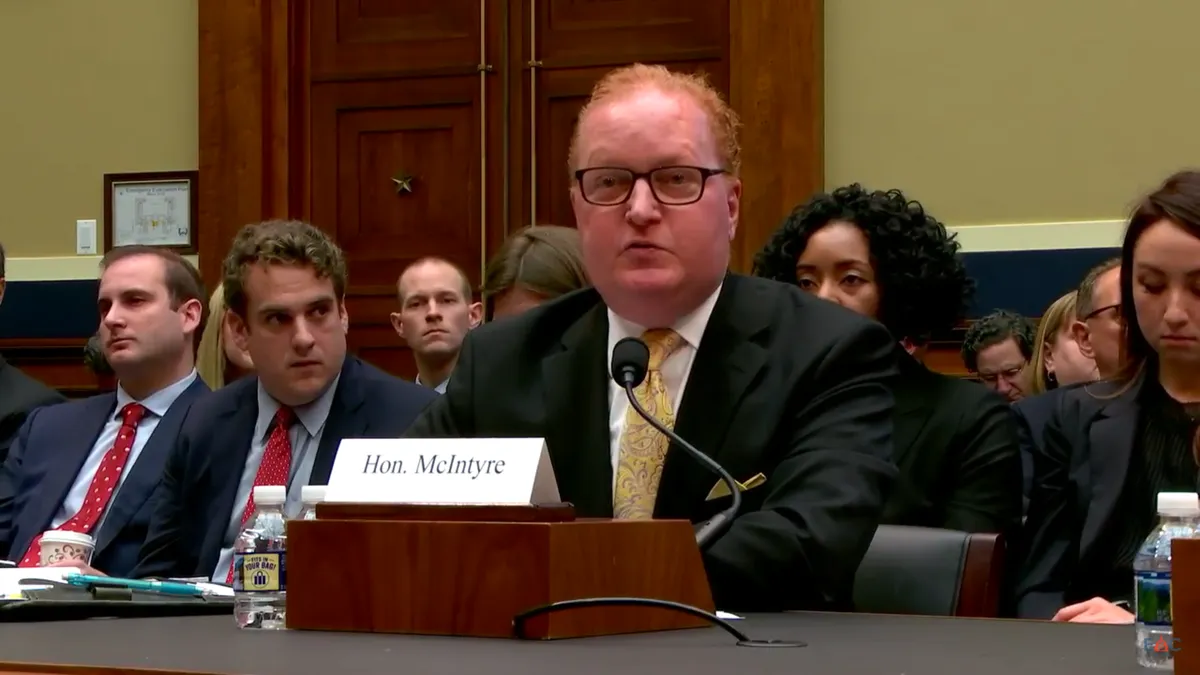Dive Brief:
- The chairman of the Federal Energy Regulatory Commission on Tuesday linked questions of power plant fuel supply to the agency's grid resilience proceeding, saying it "sure would be convenient" if regulators can identify specific generator attributes to compensate in order to strengthen the nation's grid.
- FERC staff is reviewing recent weather events to see "what is or isn't needed during very challenging operational circumstances," in terms of fuel supply and other attributes, Chairman Kevin McIntyre told reporters, adding that he hopes comments in the resilience proceeding — due Wednesday — will help inform that assessment.
- McIntyre's comments came a week after ISO-New England asked FERC to allow it to provide cost recovery for a gas generator based on fears that an adjacent LNG import facility would close without demand from the plant. Critics say the proposal could set the dangerous precedent of granting cost recovery for plants based on their fuel supplies, rather than the usual rationale of power system reliability.
Dive Insight:
McIntyre's comments after his speech at the Energy Bar Association on Tuesday could shed light on how the commission will approach the sticky issue of fuel security.
Before ISO-NE's filing on May 1, the Department of Energy had made onsite fuel supplies the center of its bailout proposal for coal and nuclear plants, which FERC unanimously rejected in early January. And the PJM Interconnection has recently entered the game as well, announcing last month that it would devise new fuel security payments in its capacity market that will likely need FERC approval.
FERC regulators cannot speak directly to pending dockets, but when asked about fuel security, the chairman expressed hope that comments in the resilience proceeding will help inform FERC's approach to the issue.
"Recent weather events have given us some data that we can study on what is or isn't needed during very challenging operational circumstances and we're spending a lot of time going through that information and figuring out what's what," McIntyre said. "We still have our grid resilience proceeding open and we hope we get a lot of data, studies and information from that process that will enable us to take a strong look."
In the end, McIntyre hopes the commission can identify specific power system attributes that can be compensated to enhance grid resilience.
"Is there such a thing as a recognizable resilience attribute that one can easily, or at least in terms that are manageable, recognize and identify?" he asked. "If the answer to that is yes, which would sure be convenient, then we just need to go about the simple business of figuring out how to compensate it."
While comments from market participants in the resilience proceeding are due on Wednesday, the nation's grid operators filed theirs in March. At the time, PJM asked FERC to allow grid operators to provide "provisions for cost-based compensation" when they feel generators critical for resilience are in danger of retirement.













